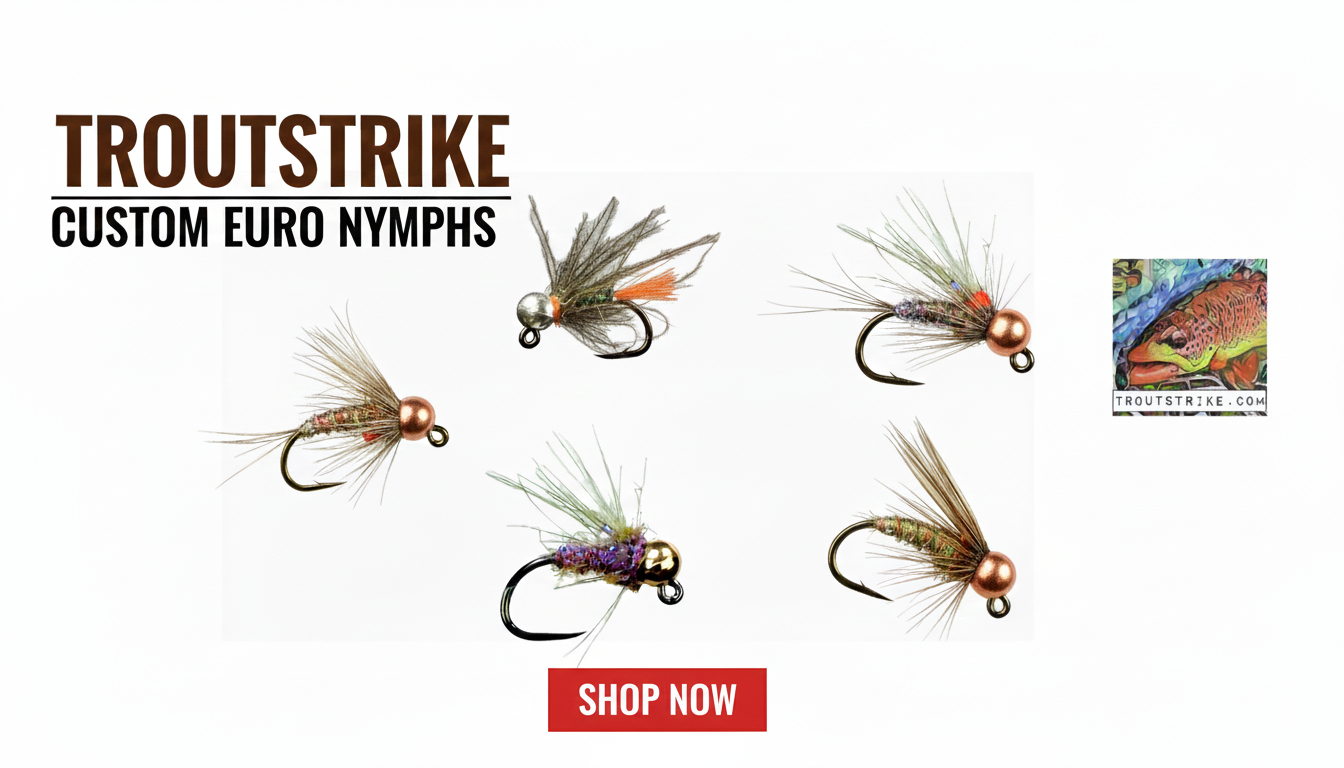“Euro nymphs” are not altogether different from traditional nymphing flies. The name “Euro Nymph” really refers to a style of nymphs that feature heavy tungsten beads and tied on a jig style hook. For example, perdigons are generally considered to be a euro style nymph. Several years ago, all the nymphs I tied used brass beads. Tungsten is a much denser metal than brass. So, tungsten beads are heavier and help euro style nymphs sink at a higher rate.
In competition, anglers must avoid adding any extra weight to their leaders or tippet. So, competitive anglers began tying nymphs with less bulk and heavier tungsten beads. They also began tying flies on jig style hooks. These hooks tend to get hung up less on the bottom of the river. The heavier “euro style flies” that were once exclusive to competition angling have now become mainstream.
Learning to tie euro style nymphs really helped me to improve my tight line nymphing game. When I learned how to organize my flies by weight, I became more efficient on the water. I was able to make quick adjustments to my drifts by easily changing the weights of the flies I was using.
TroutStrike Fly Box
The video below details how I set up a TroutStrike fly box. These fly boxes can be purchased on my Etsy site, but that’s not the purpose of this post. While I do still sell flies, my bigger goal is to make TroutStrike.com resource for fly anglers to continue learning. The purpose of showing you this video is to learn how to organize your weighted nymphs. Having an organized system will help you be more efficient in making minor adjustments when on the water.
Pattern Simplicity
Any nymph pattern can be tied in the euro style; however, many anglers prefer simple, proven patterns. Tied in the euro style, a waltz worm is one of the most simplistic patterns of all. A wide variety of dubbing materials and colors can be used to tie a waltz worm. My confidence colors for waltz worms are tan, olive and hares ear. Some of my other favorite patterns to fill Euro style nymph boxes are perdigons, pheasant tail frenchies, and rainbow warriors. All of these patterns are fairly straightforward and can be tied with endless variations.









Create a System that Works for You
When you arrange euro style nymphs in your box by bead size, it becomes easy to distinguish between heavier and lighter bugs. I keep it simple by thinking of it as small, medium, or large (2.4 mm, 2.8 mm, 3.2 mm). Occasionally, I need an XS (2.0 mm) or and XL (4.0 mm) for high water or low water.
Whatever way you choose to organize your euro nymphs, the most important step is to identify your confidence bugs and have them tied in a variety of weights. By focusing less on the pattern and more on the weight, you will spend more time getting consistent drifts and netting more trout.
Thanks for reading! Spend more time on the water!
Have a great day!

Jeff Smecker
*Make sure to leave a comment below!






Thanks love that you show a picture with the fly!
Thanks for reading! I often try to get photos of fish with the fly it ate!